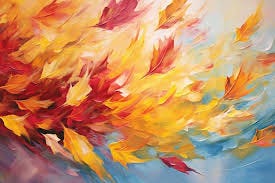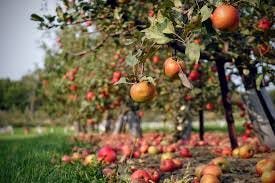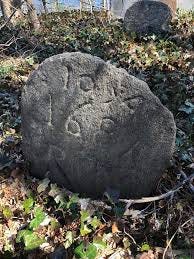The leaves are falling to the ground, the squirrels are planting their acorns, and soon a frost will speed along the dying of the plants in my garden. The days are shortening, the light is more golden but there is less of it. Autumn is the season of death, the time we remember, in so many different religious traditions, the dying—and the time I have always felt most alive. I wake up on a crisp fall day and everything feels possible. The woods are yellow and glowing, the apples are red, and something magic in me is beginning to ripen.
Anyone who has ever sat with a loved one preparing to cross over knows that when death is close life is sweet. Sensations are heightened, words matter, every moment becomes precious.
Yet, in truth, the world is always dying. Death is always close but we bustle about our days pretending its mostly happening somewhere else far off in the future. Once when we lived more truly within extended families and close-knit communities, someone was always dying nearby nor could we ignore how the food we ate came to us—hunted, harvested, and butchered. We ate the dead. We buried in our dead in our own backyards. Every day was the day of the dead.
Every morning, every day of the year, I begin by summoning in those on the other side—my ancestors, various saints, demi-gods and angels, animals that have passed over, and all the souls from the other side who have shown up for me. Throughout the day I notice the arrival of the dead—the man coming to check my water tells me about the death of his beloved dog and begins to weep. Her name was Nellie, the same name as my dog-loving grandmother. Over lunch my husband, out of the blue, speaks of his father, gone now two years, and we finally find a job that might earn him the atonement and forgiveness he so needs. A raccoon has been hit on our road and I stop to mutter a mantra for it and remember the road kill who guided me into this powerful relationship with all manner of souls.
I pray to the dead to help me remember who I really am while I’m still alive. I pray to the dead to help me feel alive. I pray to the dead to claim the blessings of this wonderous life.
And I pray to the dead and with the dead every single day, often all day long.
Starting today I am going to begin sharing what that looks like and feels like and offering suggestions and guidance for bringing the dead into your daily lives. I invite you to join me, if you ask questions, I might devote the next day’s post to them. If you have stories to share about your encounters with the other side, share away! I was going to way until November 2nd…All Souls Day, the Day of the Dead…but then I realized that was arbitrary. Today feels like the day begin. So here we go!
Today I invite you to notice all that is dying near you…the plants, the leaves, the spider curled up in the corner, the tuna that became your sandwich, the potatoes that come from underground, the garlic pulled up by the roots.
Remember, too, that none of us know the time of the end, we’re all dying, we’re all falling from the trees, we’re all turning into rot, we’re all becoming the soil from which the flowers will grow.
Every thing dies—the green and growing things, those beings that swim and creep, those that lumber and crawl. Mountains die. Rivers die. Stars die. Glaxies die. Death is not an accident, a mistake, a failure…but a passage and a transformation from one place to another. The leaf on the tree has one kind of knowing, the leaf on the ground another.
I pray to the dead to help me see what the leaf knows, the mountain remembers, and the stars have foretold.
Join me for a year of coming back to life with the dead.
Perdita Finn is the author of Take Back the Magic: Conversations with the Unseen World and the forthcoming Mothers of Magic: Recovering the Love at the Heart of the World. With her husband Clark Strand she is the founder of The Way of the Rose and the co-author of the book of the same name. She lives with her blood, soul, and fur kin in the Catskill Mountains.





Love this invitation, thank you! Thinking about all that is dying in natural cycles that we expect, rely on, and even relish, versus the unexpected dying that happens in natural disasters and even worse, in wars. How much different perspectives of time shape our understanding? And thinking about the magnolia seed hanging by its silk thread, alive but suspended in time until it either germinates or dies.
Oh I love this! I think it was your book that first nudged me to send blessings to dead creatures at the side of the road, and now my children join in too. Thank you, what a beautiful way to observe autumn.